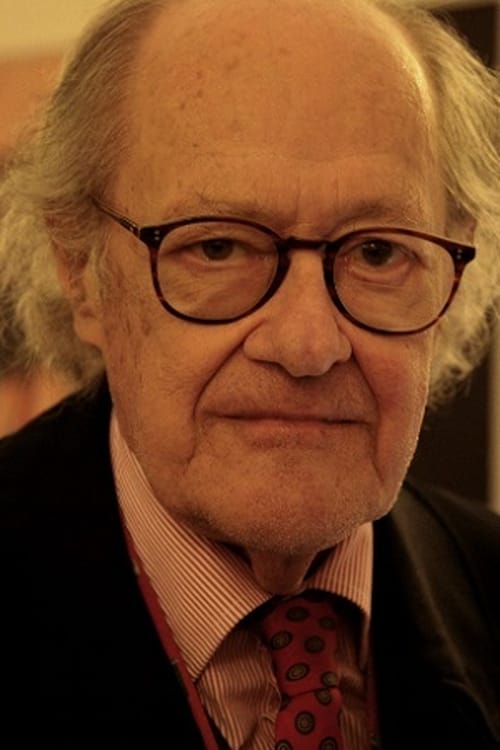Ugo Gregoretti
Nacimiento : 1930-09-28, Rome, Italy
Muerte : 2019-07-05
Historia
Ugo Gregoretti (born 28 September 1930) is an Italian film, television and stage director, actor, screenwriter, author and television host.
Born in Rome, Gregoretti entered RAI in 1953, working as a documentarist and a director. In 1960 he won the Premio Italia Award for the television documentary La Sicilia del Gattopardo. In 1962 he made his film debut with the comedy-drama I nuovi angeli. Since 1978 he started his activity on stage as director of prose and opera representations. His activity as director is mainly characterized by a sensitivity to the political and social issues combined to a peculiar use of irony and satire.

An unusual portrait of Ugo Gregoretti, actor, film, television and theater director, and father of 5 children. His children and his wife tell us about him, going through the years spent together, talking about his irony and tenderness, his indulgence and his ability to make people smile.
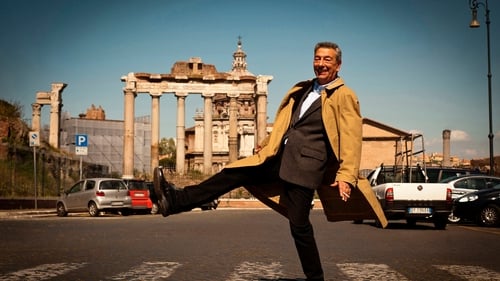
Generale
Easygoing Gianni looks forward to retirement - until he is informed that a change in the law obliges him to work three more years. Faced with the outrageous possibility of having to do a full day's work, he sets about finding a way to achieve a quiet life

Director
100 years ago, a terrible earthquake, followed by an equally terrible tidal wave, devastated and largely destroyed Messina and Reggio Calabria.

The story of La Rabbia by Pier Paolo Pasolini and Giovanni Guareschi, a movie lost in the archives of a laboratory in Rome, and recently re-discovered.

Himself

Self
italian documentary

Self
Documentary about Italian film screenwriter Cesare Zavattini

Director
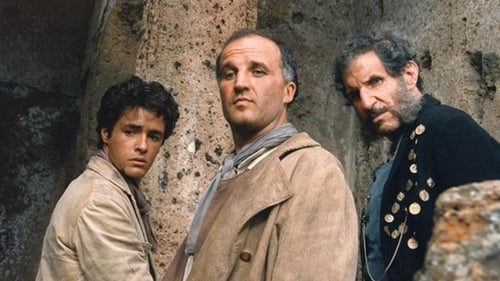
Marquis Lucifero
1848, Tuscan countryside. Edo and Lupo are two peasants running away after having robbed their boss. Chased by mercenaries, they'll meet bandits, damsels in distress, eccentric nobles, and revolutionaries along the way.

Editor
A film of Enrico Berlinguer's funeral in Rome, briefly tracing his career as leader of the Italian Communist Party.

In a hypothetical future not too far away people are completely dazed and spend their days passively watching TV. The state is controlled by a dictator, the Supreme Dreamer, who governs through the brutal force of the police, whose agents have a very elegant yellow and black latex outfit. The only entertainment of the people is to watch the dictator's dreams on TV, which are aired through a hat. One day the protagonist, an anarchist rebel with fake mustache, steals the dictator's hat. At that point begins his escape during which he will meet some very special characters.
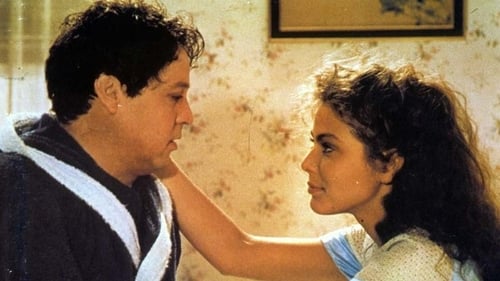
Lo psicologo
Un hombre entra en crisis al saber que puede quedar arruinado pronto. Su psiquiatra le recomienda que se haga pasar por pobre, para empezar a asumir así una nueva condición social

Un ospite
En una terraza de Roma se reúne un grupo de personas. Algunos son amigos, otros conocidos y otros se acaban de conocer. Todos son intelectuales y pertenecen a la clase media. En una de esas reuniones se encuentran Enrico, un guionista en crisis, Amedeo, un productor, Luigi, editor y periodista, Sergio, un ejecutivo de TV, Galeazzo, que acaba de regresar de Venezuela, Bruno, productor de anuncios de TV, y Mario, un diputado del Partido Comunista. (FILMAFFINITY)

Writer
Based on 1925 Bulgakov's The Fatal Eggs, a zoologist finds a way to accelerate embryo growth in chicken eggs to help feed the population after the war. An unfortunate logistical accident makes the country swarmed with dangerous reptiles.

Director
Based on 1925 Bulgakov's The Fatal Eggs, a zoologist finds a way to accelerate embryo growth in chicken eggs to help feed the population after the war. An unfortunate logistical accident makes the country swarmed with dangerous reptiles.
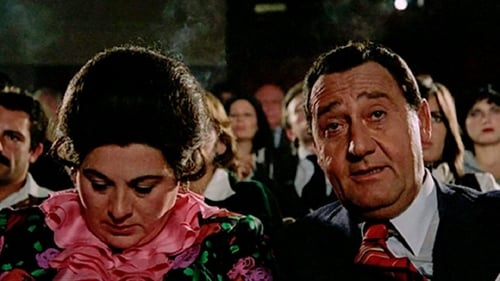
primo critico
Película dividida en cuatro episodios que tratan sobre el sexo y la pornografía:
- Giacinto Colonna y su mujer Erminia van al cine a ver una historia romántica pero terminan viendo una película pornográfica.
- Un ingenuo intelectual de izquierda es engañado por la astuta editora de una revista sólo para hombres.
- Un juez moralmente estricto pretende reunir firmas para prohibir las revistas pornográficas que abundan en los quioscos. - Un grupo de expertos convence a una actriz para que interprete una escena "osé".
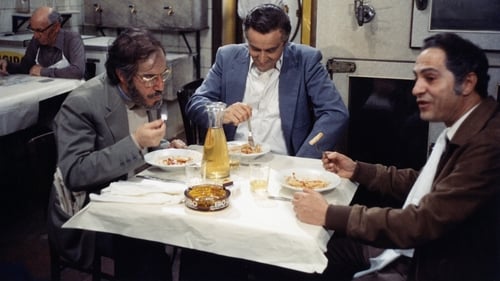
Presenter (uncredited)
Amarga crónica de la historia de Italia, desde la posguerra hasta los años setenta, narrada a través de un grupo de amigos de izquierdas que se conocieron cuando en 1944 lucharon contra los nazis. Este retrato del idealismo, pero también de la inevitable pérdida de las ilusiones a causa del acomodamiento burgués, fue el primer éxito internacional del realizador italiano Ettore Scola.

l'intervistatore
One of the first tv-movie of Gianni Amelio: a journalistic investigation about boys of Calabria.

Director
Factory workers struggles over contracts in post-68 Italy documented through original footage.
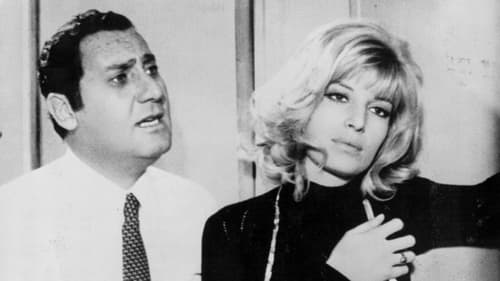
Michele Parodi
Raffaella se enamora de otro hombre, pero aún quiere a su marido, pidiéndole a éste comprensión y ayuda.

Director
The film documents the trade union battle of the workers of the Apollon printing house in Rome, occupied for a few months after the management decided to fire all the personnel and sell the land on which the factory was standing. In the form of a docu-fiction, the events of the long occupation are reconstructed, which began on June 4, 1967 and ended in December 1968. The workers play themselves and various other roles, but they are also co-authors of the film, which is not a simple chronicle of events, but an analytical reading of the reality of the factory, the story of the conquest of instruments of struggle and democracy, with the indication of strategies of attack on the bosses' power. The narrative voice of Gian Maria Volonté gives continuity to the story and comments on the events.

Director
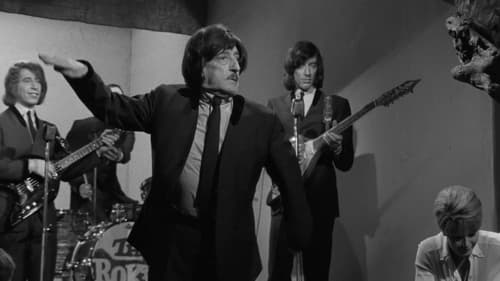
Screenplay
Professor Serafino Benvenuti is a master of classical music who has the passion of the orchestra director. However, the young audience of the 60 does not appreciate classical composers like Mozart or Beethoven, and so Serafino is likely to have compromised his image as a director. One day Serafino receives the news that his adopted daughter Rita is about to return to Italy from America, where she is studying. Serafino is very happy, because at least he can teach her the real music. However, Rita is deeply grown and changed: she follows the musical patterns of her time: the rock music and blues. Serafino gets very angry, especially when he discovers that his daughter falls in love with a young man, a member of a band called "The Rockets.
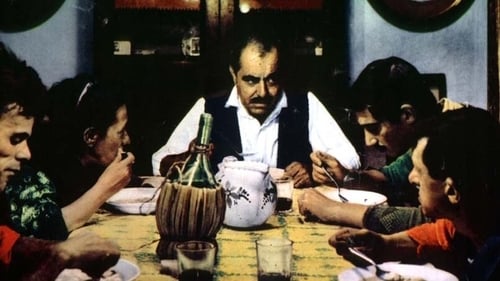
Story
The film's theme is four episodes that offer the public a glimpse into the lives of rich and poor families in Italy in the 1960s.

Screenplay
The film's theme is four episodes that offer the public a glimpse into the lives of rich and poor families in Italy in the 1960s.

Director
The film's theme is four episodes that offer the public a glimpse into the lives of rich and poor families in Italy in the 1960s.
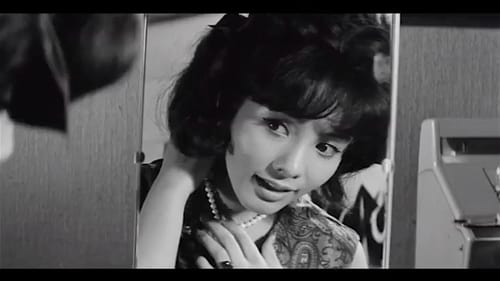
Writer
Film por episodios que reúne a directores tan distintos como los franceses Claude Chabrol y Jean-Luc Godard, el italiano Ugo Gregoretti, el japonés Hiromichi Horikawa y el franco-polaco Roman Polanski. Cada uno de ellos relata una estafa supuestamente célebre y real.

Director
Film por episodios que reúne a directores tan distintos como los franceses Claude Chabrol y Jean-Luc Godard, el italiano Ugo Gregoretti, el japonés Hiromichi Horikawa y el franco-polaco Roman Polanski. Cada uno de ellos relata una estafa supuestamente célebre y real.
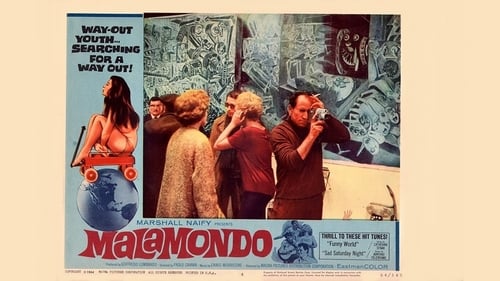
Writer
Documental que trata sobre los jóvenes europeos. Estos jóvenes se nos muestran en varios episodios, analizando sus manías y sus defectos más evidentes. Paolo Cavara examina algunas naciones cuidadosamente y nos documenta sobre algunas de sus costumbres más interesantes.
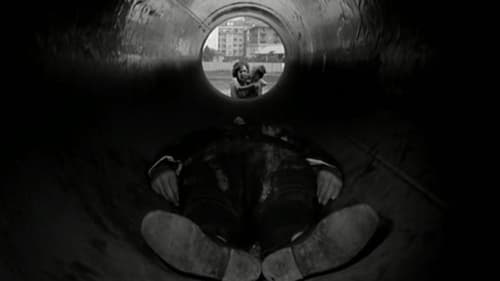
Writer
Un alienígena del planeta Ultra usurpa el cuerpo de un terrícola para comprender más sobre la humanidad y la tierra antes de que comience la invasión. Film de ciencia ficción de clara orientación marxista que reflexiona sobre los acontecimientos políticos desde la óptica de un ser extraño a nuestro planeta.

Director
Un alienígena del planeta Ultra usurpa el cuerpo de un terrícola para comprender más sobre la humanidad y la tierra antes de que comience la invasión. Film de ciencia ficción de clara orientación marxista que reflexiona sobre los acontecimientos políticos desde la óptica de un ser extraño a nuestro planeta.

Screenplay
Esta película consta de cuatro historias dirigidas por Jean-Luc Godard, Ugo Gregoretti, Pier Paolo Pasolini y Roberto Rossellini.

Director
Esta película consta de cuatro historias dirigidas por Jean-Luc Godard, Ugo Gregoretti, Pier Paolo Pasolini y Roberto Rossellini.

Director
Falling somewhere in-between a documentary and a droll drama (more like an enactment of reality, with a wink), this film by TV director Ugo Gregoretti looks in on a variety of social and ethnic situations throughout Italy. Sexual morés are contrasted, from the quaintly out-of-date courtship in Sicily to the sometimes uncomfortably explicit sexual references in the conversations of the youth at the opposite end of the country. Aside from these manners and morals, there is an examination of what happens when mechanized tools of production begin to take away from the human element at factories and in other industrial venues.
